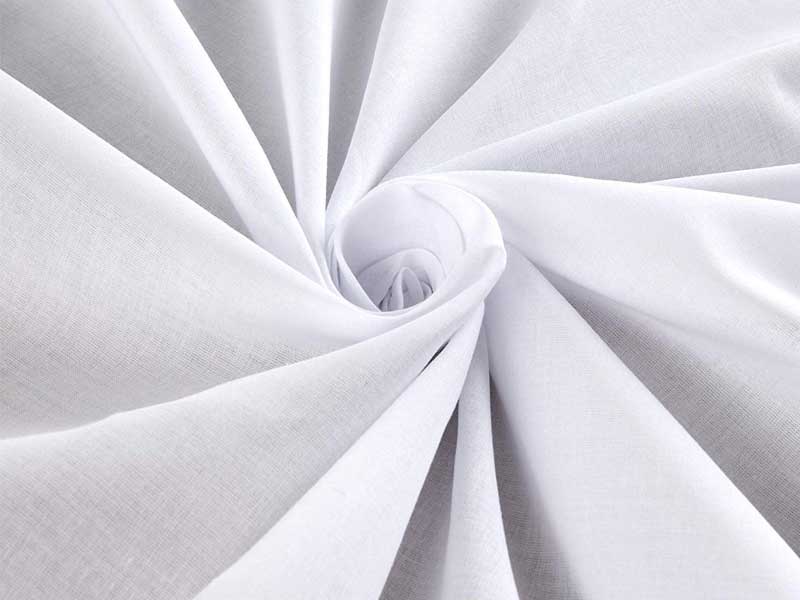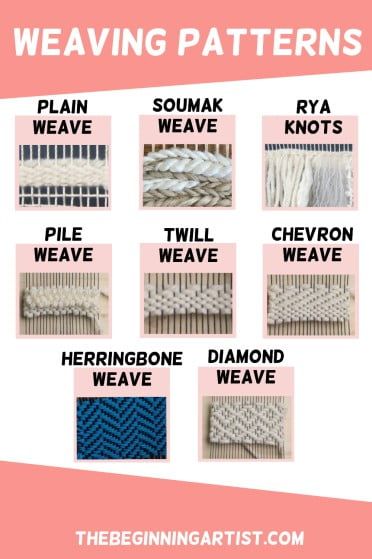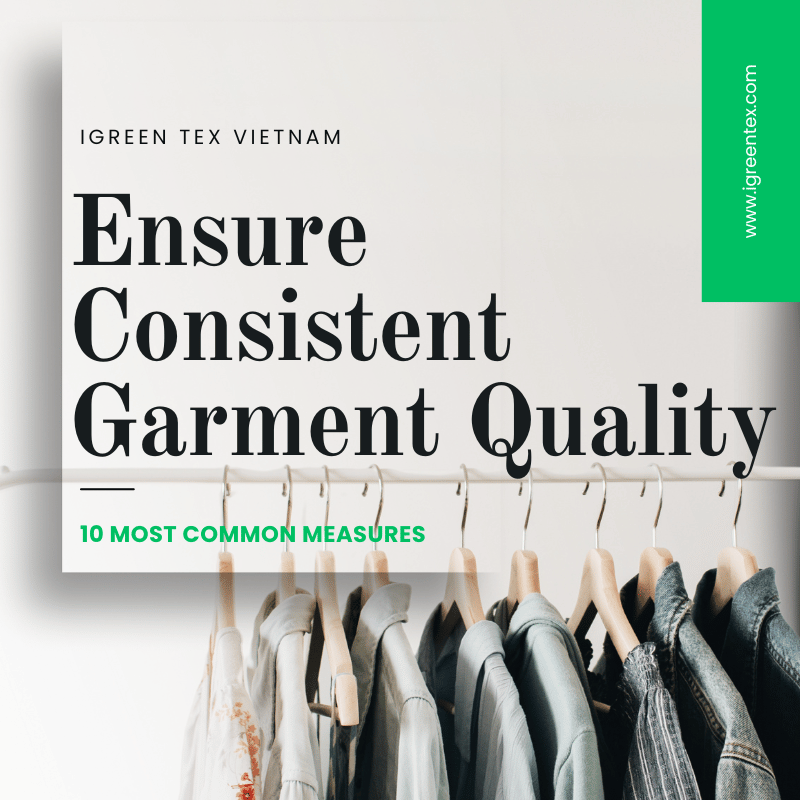The demand for eco-friendly fashion is growing, and consumers are looking for sustainable options. Choosing the right fabrics is key to making a positive environmental impact. In this blog, we will explore the best fabrics for eco-friendly fashion, focusing on sustainable fabrics for fashion that are both stylish and kind to the planet.
Organic Cotton Fabrics
Organic cotton fabrics are widely regarded as one of the best choices for sustainable fashion. Unlike conventional cotton, organic cotton is grown without harmful pesticides or synthetic fertilizers. This method preserves the health of the soil and reduces water consumption. According to the Textile Exchange, organic cotton farming uses up to 91% less water compared to traditional cotton farming.
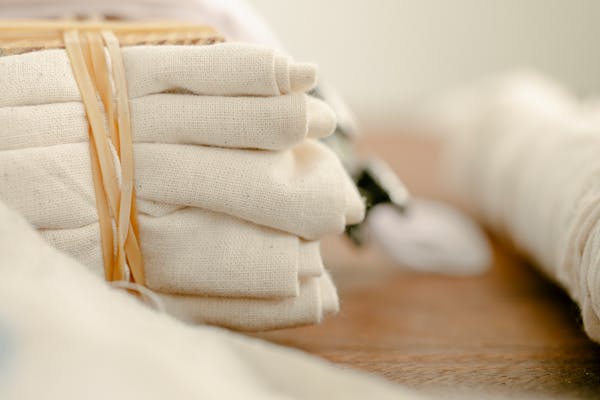
Moreover, organic cotton is biodegradable and does not release toxic chemicals into the environment. This makes it an ideal option for eco-conscious consumers who care about non-toxic fabrics for clothing. Many brands are now incorporating organic cotton fabrics into their collections, promoting ethical fashion materials that are better for the environment.
Why Organic Cotton is a Sustainable Choice:
- Grown without synthetic chemicals
- Uses significantly less water
- Biodegradable and non-toxic
Best Uses:
- Everyday wear
- Baby clothing
- Eco-friendly activewear
Bamboo Fabrics for Eco-Friendly Clothing
Bamboo fabrics are another excellent option for those looking to adopt a sustainable wardrobe. Bamboo is a fast-growing plant that requires minimal water and does not need pesticides. This makes it a highly renewable fabric suitable for eco-friendly fashion.
Additionally, bamboo fabric is naturally breathable, moisture-wicking, and antibacterial. This makes it a great choice for eco-friendly fabrics for activewear. The sustainability of bamboo fabric is further supported by its biodegradability. When disposed of correctly, bamboo fabrics break down naturally without harming the environment.
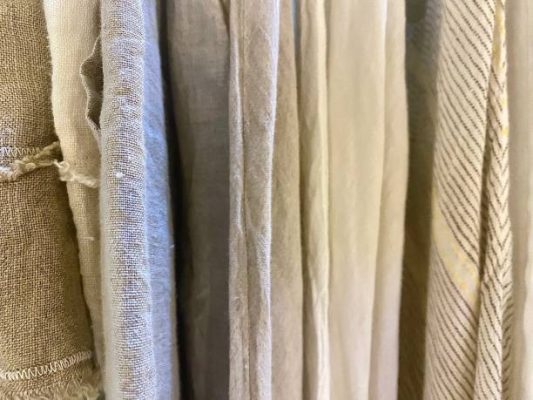
However, it’s important to note that the manufacturing process for bamboo fabrics can vary. Some processes use chemicals that can harm the environment, so it’s essential to choose bamboo fabrics processed through mechanical methods.
Why Bamboo Fabrics are Sustainable:
- Bamboo is fast-growing and requires minimal resources
- Naturally biodegradable
- Breathable and antibacterial
Best Uses:
- Activewear
- Underwear
- Lightweight summer clothing
Recycled Polyester Fabrics
While polyester is a synthetic fabric made from petroleum, recycled polyester fabrics offer a more sustainable alternative. Recycled polyester is made from post-consumer plastic, such as discarded plastic bottles. This not only helps reduce plastic waste but also decreases the energy and water consumption required to produce virgin polyester.
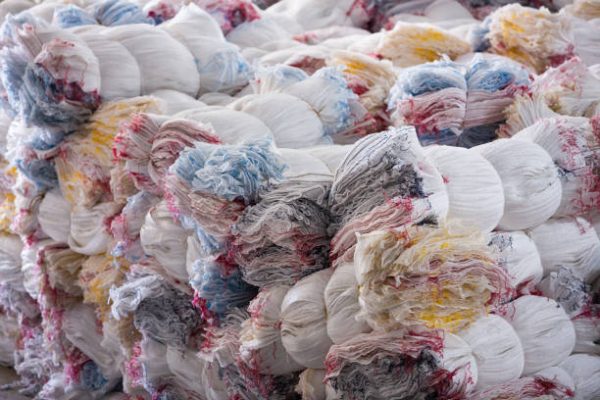
According to a report by Fashion for Good, using recycled polyester can reduce energy use by 59% and carbon emissions by 32% compared to producing new polyester. As a result, recycled polyester is gaining popularity in the fashion industry, especially among brands promoting zero-waste fabrics for clothing.
Recycled polyester fabrics are durable, lightweight, and moisture-resistant, making them perfect for eco-friendly fabrics for activewear. However, one downside is that polyester, even in its recycled form, is not biodegradable.
Why Recycled Polyester is a Sustainable Choice:
- Made from post-consumer plastic waste
- Reduces energy and carbon emissions
- Durable and moisture-resistant
Best Uses:
- Activewear
- Outerwear
- Sports clothing
Hemp Fabrics for Sustainable Clothing
Hemp fabrics are some of the most eco-friendly fabrics available today. Hemp is a highly sustainable crop that grows quickly, uses minimal water, and requires no pesticides. In fact, hemp can even improve soil quality by preventing erosion. It is considered one of the best biodegradable fabrics for sustainable fashion.
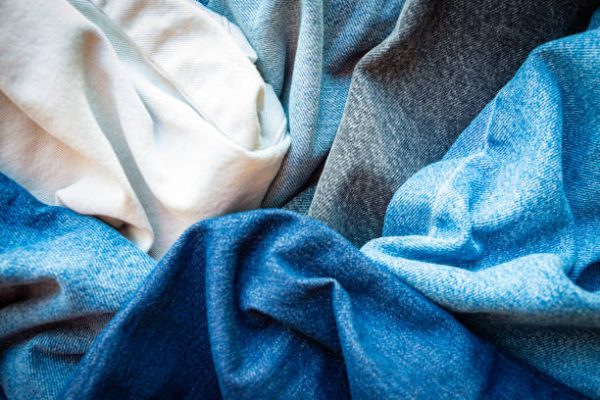
Hemp fabrics are incredibly durable and have a long lifespan, which makes them ideal for slow fashion. This fabric is breathable, mold-resistant, and softens with each wash, making it suitable for year-round wear. It also has natural UV protection, making it ideal for eco-friendly fashion brands targeting summer collections.
Another advantage of hemp is that it is fully biodegradable. Once disposed of, hemp fabric decomposes naturally, leaving no harmful residue behind.
Why Hemp Fabrics are Sustainable:
- Requires minimal water and no pesticides
- Improves soil quality
- Durable and biodegradable
Best Uses:
- Casual wear
- Outerwear
- Sustainable fashion brands
Natural Linen Fabrics
Linen is a natural fabric made from flax plants and is widely regarded as one of the most sustainable fabrics for fashion. Flax grows quickly and requires very little water, making it a low-impact crop. Additionally, every part of the flax plant can be used, reducing waste and promoting the zero-waste fashion movement.
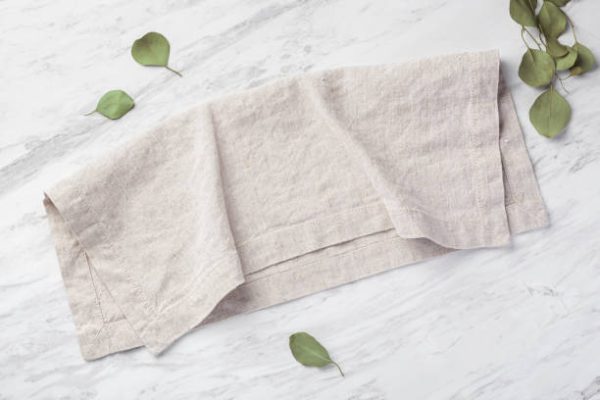
Linen fabrics are breathable, strong, and absorb moisture well. They are also biodegradable, contributing to their eco-friendly status. Linen has been used for centuries and remains a staple for summer clothing because of its cooling properties.
One of the best things about natural linen fabrics is their durability. While linen might wrinkle easily, it becomes softer and stronger with every wash. This long-lasting quality makes linen ideal for slow fashion, as it encourages less frequent replacement of garments.
Why Linen is a Sustainable Choice:
- Low water requirements
- Biodegradable and zero-waste
- Durable and breathable
Best Uses:
- Summer wear
- Formal clothing
- Home textiles (such as bedding and towels)
Conclusion: Choosing the Best Fabrics for Eco-Friendly Fashion
Sustainable fabrics are becoming a cornerstone of the eco-friendly fashion movement. From organic cotton fabrics to bamboo fabrics for eco-friendly clothing, consumers now have many options that support both style and sustainability. By choosing recycled polyester fabrics, hemp fabrics for sustainable clothing, and natural linen fabrics, we can reduce our environmental impact and contribute to a healthier planet.
Switching to eco-friendly fabrics not only supports ethical fashion materials but also promotes renewable fabrics for sustainable fashion. As consumers, every choice we make helps shape the future of fashion—one that values the planet as much as style.
By opting for the best fabrics for eco-friendly fashion, we take one step closer to a wardrobe that’s both fashionable and sustainable. Whether you’re looking for activewear made from eco-friendly fabrics, durable clothing for slow fashion, or fabrics for zero-waste fashion, the options are expanding.
Read more:
- ORGANIC DYEING IN FABRICS
- PINATEX FABRIC
- COCONUT FIBER
- BAMBOO FABRIC
- ECO-FRIENDLY FABRICS
- 10 TYPES OF ECO-FRIENDLY BAGS ARE TENDENCIES IN THE WORLD
- JUTE FABRIC
About IGREEN TEX
IGREEN TEX is a provider of fashion and textile products, offering a wide range of apparel both domestically and internationally. Our commitment to quality ensures that our products not only meet the highest standards but also promote eco-friendly practices.
IGREEN TEX VIETNAM CO LTD
Address: No. 83, A4 Street, Ward 12, Tan Binh Dist, HCMC
Tax code: 0315844409
Email: info@igreentex.com
WhatsApp/Viber/Zalo: +84 938.045.900
